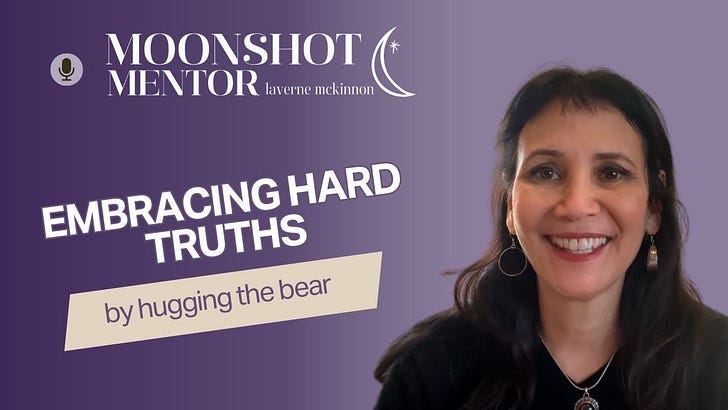Ever wonder how to distinguish between being in a temporary slump or realizing it's time to move on?
It's a question that can be applied to all different aspects of life: relationships, academic pursuits, hobbies, and even the latest show you're binging. Personally, I’m torn about continuing DARK on Netflix after watching several episodes, but let's set that aside for now. 🤪 Today, let's zoom in on career-related scenarios such as hitting a plateau, experiencing stagnation, witnessing a decline, or even facing the possibility of being let go from your job.
So, picture this scenario: You've put a considerable amount of time, money, effort, emotional energy, and made countless sacrifices to ensure your professional life is successful. But here's the catch: things aren't exactly on the upward trajectory anymore. It's a tricky situation because you're at a crossroads and feeling unsure about what to do next.
There's a term for this predicament—it's called the Sunk Cost Fallacy. I learned about it when I got my MBA. 🧠 It's that nagging feeling that makes it difficult to make a decision when you've already invested so much. In fancier business terms, it describes how the more time we have committed to an endeavor, the more we are inclined to stay committed despite the benefits outweighing the costs.
Here’s a low-stakes example: You know, when you come across a show that everyone's raving about, and you want to give it a fair chance, but you're getting super restless? That was my experience with DARK. The third episode ended on a cliffhanger, and part of me is curious about what happens next. However, I'm not really drawn to the characters, which makes it hard to fully engage. Plus, there's that nagging feeling of not wanting to feel like I've wasted the 2 ½ hours I've already invested in the show.
When I find myself in this type of situation, I tend to multitask as a way to cope. I'll hop onto the internet and take care of some errands — like food planning, creating a shopping list, or handling emails that require minimal brainpower. That way, I can continue watching and find out what happens, while also feeling productive. Although, my friend refers to my split focus as "half-tasking."
Back to the Sunk Cost Fallacy and how to navigate knowing whether you’re in a slump, or it’s time to career pivot.
First, you’re not alone in asking this question.
According to a study published by Zippia.com in February 2023, 65% of American workers are searching for a new full-time job. Sounds like a lot of folx are not just wondering if it’s time to move on — they are actively looking. A few other interesting stats from this same study:
🤔 The average age Americans change their careers is 39.
🤔 U.S. workers have an average tenure of about 4.1 years with a single employer.
🤔 The average American worker has 12 jobs throughout a lifetime.
So how do you know if it’s time to move on?
Let’s start by examining your values.
What was important to you when you started the job? Perhaps this gig was a rebound from being fired, down-sized or laid off? Perhaps you had “shiny object” syndrome and rationalized your way into thinking it was a good match? Perhaps you were in a financially tough spot and had to take whatever was offered? Perhaps you saw the gig as a golden ticket that checked off the boxes for you in terms of passion, pay, benefits, and life balance? Be honest with yourself on your reasons for saying “yes.”
Now let's shift the focus to what holds significance for you at this very moment.
If you're taking the time to read this, there's definitely a reason behind it. You might be feeling unhappy, bored, or unmotivated. It's time to gather some data by identifying which of your values are being honored and which ones are being trampled upon in your current work situation.
Take a moment to reflect on whether these values are being compromised by your own actions, someone else's behavior, or simply the overall circumstances you find yourself in.
By understanding this aspect, you'll gain a clear understanding of what's truly important to you in your work life.
I have an example from my client “Alicia” that might resonate with you.
For a span of seven years, Alicia worked her way up from being an assistant to a coordinator. It felt like she was grinding away forever, and at times, she doubted if she would ever see any progress. One of her core values was having her hard work recognized and appreciated. That validation meant a lot to her and it was frustrating to constantly be passed over.
But then, finally, that moment arrived — the breakthrough she had been waiting for. Alicia landed a promotion as a creative executive at a major studio. It was a dream come true.
Alica found immense joy in acquiring new skills and embracing the exhilaration that came with added responsibilities. After holding the position of Manager for three years, Alicia's hard work and dedication paid off again. She was promoted to the role of Director where she had the opportunity to sit in on important meetings, provide valuable feedback on scripts to her colleagues, and developed more efficient tracking systems.
However, after about two years into the Director role, Alicia began questioning herself. She no longer felt challenged and struggled to define what truly mattered to her. She couldn't help but wonder if she was experiencing a temporary slump or if it was a sign that she should start exploring other opportunities.
To top it off, at 36-years-old and recently married, Alicia was ready to embark on starting a family. She didn't want to give up her career, but she had concerns about balancing parenthood with the demands of her busy job.
With 12 years dedicated to reaching this stage in her career, Alicia felt trapped and unsure about her next steps. This is the Sunk Cost Fallacy! Should she search for a new job that offered more responsibility but might have an impact on how she wanted to be a parent? Or should she maintain the status quo, looking it as a "soft landing" while starting a family, even though she felt bored and restless?
When Alicia and I started working together, we took a deep dive into clarifying her values because they had changed with new experiences and new information.
She recognized the following:
Stability and security took precedence in her life as she had a strong desire to start a family. She highly valued benefits like a comprehensive health insurance plan and a 401K, both of which she already had in her current role.
Peace and harmony became increasingly important to Alicia. At 36 years old, she recognized that she would be considered advanced maternal age for pregnancy, which carries a higher risk of certain complications. Alicia wanted to ensure she was mentally, spiritually, and physically prepared to become pregnant.
Downtime became increasingly valuable to Alicia, while the sense of urgency surrounding promotions dwindled. She found immense joy in nesting with her husband and building their life together, cherishing the quieter moments and the opportunity to cultivate their relationship.
Next, Alicia looked at the beliefs she currently held about her career and parenthood.
Alicia believed that once she became a parent, her chances for promotion would be diminished. She anticipated that she would be unable to work as diligently or dedicate as many "extra" hours as required to distinguish herself.
Alicia strongly believed in the importance of being an actively involved presence in the early years of her child's life. She considered this period crucial for bonding and nurturing her child's development.
Alicia saw her career as an integral part of her identity, and she was not content with the idea of solely being defined as a mother. She valued the fulfillment and satisfaction that her professional pursuits brought her.
As we looked at each of these beliefs together, we asked and researched whether there was data to support the belief. Alicia knew from our work that belief always trumps truth so it was critical to challenge any assumptions she was making.
To conclude Alicia's journey in discerning whether she was in a slump or should pursue a new career path, we focused on connecting with her intuition. We delved into the understanding that intuition goes beyond surface-level judgment and taps into a deeper knowing.
Intuition is not fear-based; it transcends mere instincts.
While fear is instinctual and rooted in concerns for safety and well-being, intuition arises from a profound well of wisdom. It has the ability to guide us by providing a genuine sense of alignment or nudging us away from paths that may not serve us.
By encouraging Alicia to tune into her intuition, we dove into an exploration of her inner wisdom. This empowered her to access a deeper level of self-awareness and make choices that were truly in alignment with her authentic desires and aspirations.
After carefully examining her values, beliefs, and intuition, Alicia made the decision not to pursue a new career path.
She realized that her current situation could fulfill her needs for financial stability and benefits, essential for taking care of a growing family. Furthermore, Alicia acknowledged her familiarity with the job, understanding it well despite feeling unchallenged. She found solace in the peace and harmony that came from this sense of familiarity.
However, the pivotal factor in Alicia's decision-making process was her attentiveness to her intuition.
Her "spidey-sense" guided her to have an open conversation with her supervisor about achieving a better work-life balance. To her surprise, they brainstormed and devised a plan that allowed Alicia to take on a project with a writer she had a close relationship with, while delegating some of the more routine tasks of her role to the department coordinator who longed for additional responsibilities. This unexpected turn of events that positioned Alicia as a point person offered her a newfound sense of fulfillment and purpose.
By actively listening to her intuition and embracing open communication both within herself and with her boss, Alicia discovered alternative avenues within her current role that brought her renewed satisfaction and allowed for a more balanced work-life dynamic.
If you find yourself in a similar situation where you're unsure whether you're in a career slump or if it's time to make a change, embrace curiosity. Explore the realm of your values, as they serve as your guiding light. Reflect on how your values, someone else's actions, or the situation itself may be infringing upon your core principles. If you choose to stay, consider which values you would be honoring. If you decide to pivot your career, consider which values you would be honoring.
Beliefs hold immense power in shaping our decision-making process as they shape our thoughts and emotions.
It's important to recognize that beliefs are formed without concrete evidence. Alicia's belief that her chances for promotion would diminish after becoming a parent was proven untrue when she conducted research on promotions within her department over the past decade. Turns out that 3 out of the 5 women at the VP level and above had received promotions after becoming mothers.
Lastly, place trust in your intuition. Remember, intuition doesn't evoke fear; that's instinct. To tap into your intuition, you can place your hand on your lower belly, take deep breaths, and meditate. I like to use the Headspace app. FWIW, my intuition does not speak in full sentences. 😝 However, I do get a strong feeling of a “yes” or a “no.”
Bottom line: Trusting and listening to your intuition can serve as a reliable compass on your journey.
If after these steps, you’re still in a place of not being able to determine whether you’re in a slump or it’s time to switch careers, you may be experiencing dis-enfranchised grief. Dis-enfranchised grief is a term coined by Kenneth Doka in 1989 to describe any type of grief that is not openly acknowledged, socially validated or publicly mourned. Losses in your professional life, such as losing a job, not receiving a promotion, or a project failing, can all be sources of grief. When you don’t have permission to mourn them, the decision-making wheels get clogged.
What values are you honoring in staying in your current professional situation?

I love to support ambitious, driven people who are feeling stuck and want to regain momentum so they can hit their next big goal. Want to explore working together? Check out my website.
If you’re resonating with what you’re reading, please consider subscribing. What’s that mean?
🙌🏾 You’ll receive regular emails (with lots of heart and a bit of humor) that share a tool or insight from my coaching practice.
🙌🏾 Typically the blog and podcast will have a question at the end to provoke thought that supports you in your growth.
🙌🏾 Updates on offerings, free stuff, recommendations, referrals.














Share this post